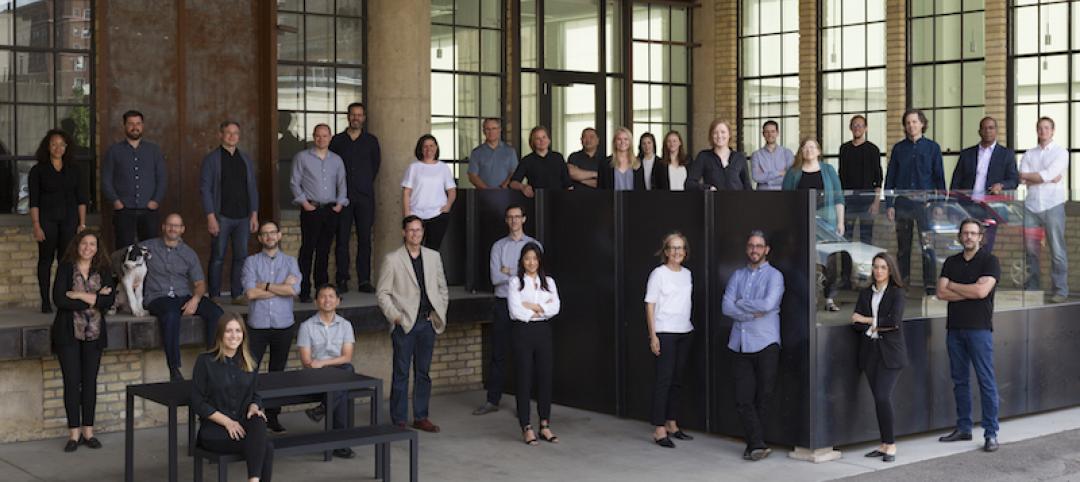The AIA Foundation has commended the addition of 35 new cities worldwide to 100 Resilient Cities, pioneered by The Rockefeller Foundation, to be part of the 100 Resilient Cities network. The announcement was made during The Rockefeller Foundation’s Urban Resilience Summit in Singapore.
The AIA Foundation became a platform partner in the 100 Resilient Cities Challenge as part of a commitment made at the 2013 Clinton Global Initiative (CGI) Annual Meeting. Partners pledged to support the cities’ Chief Resilience Officers (CRO), create resilience strategies, and provide access to tools, technical support, and resources. 100 Resilient Cities also pledged to create a network for CROs to share information and best practices.
“The AIA Foundation – through the American Institute of Architects component network nationwide – is already working in several of the selected U.S. cities to guide them in their selection of chief resilience officers and to provide AIA member expertise in resilience planning," said AIA Foundation Executive Director Sherry-Lea Bloodworth Botop. "Indeed, the AIAF hopes to act as a matchmaker of sorts between the cities that have been granted CROs and the architects and planning experts who can offer assistance and can help integrate design thinking into the monumental tasks facing CROs."
The cities selected as winners of the 100 Resilient Cities Challenge are:
- Accra, Ghana
- Amman, Jordan
- Arusha, Tanzania
- Athens, Greece
- Barcelona, Spain
- Belgrade, Serbia
- Bangalore, India
- Boston, Massachusetts, USA
- Calí, Colombia
- Chennai, India
- Chicago, Illinois, USA
- Dallas, Texas, USA
- Deyang, China
- Enugu, Nigeria
- Huangshi, China
- Juarez, Mexico
- Kigali, Rwanda
- Lisbon, Portugal
- London, England
- Milan, Italy
- Montreal, Canada
- Paris, France
- Phnom Penh, Cambodia
- Pittsburgh, Pennsylvania, USA
- San Juan, Puerto Rico, USA
- Santa Fe, Argentina
- Santiago de los Caballeros, Dominican Republic
- Santiago, Chile
- Singapore, Singapore
- St. Louis, Missouri, USA
- Sydney, Australia
- Thessaloniki, Greece
- Toyama, Japan
- Tulsa, Oklahoma, USA
- Wellington City, New Zealand
Related Stories
Market Data | Dec 20, 2017
Architecture billings upturn shows broad strength
The American Institute of Architects (AIA) reported the November ABI score was 55.0, up from a score of 51.7 in the previous month.
Public Health Labs | Dec 19, 2017
10 takeaways from SmithGroup’s ‘lab of the future’ initiative
The LAB2050 initiative digs into the scientific trends, technologies, and economics that will shape tomorrow’s research laboratory environments.
Office Buildings | Dec 19, 2017
How do we measure human performance, and what does it mean for the workplace?
There are many new tools and methods that are beginning to look more comprehensively to evaluate organizational well-being.
Sports and Recreational Facilities | Dec 18, 2017
Canada’s newest funicular makes Edmonton’s largest green space more accessible
The incline elevator is located in downtown Edmonton and was publicly funded.
Sponsored | Building Team | Dec 12, 2017
3 tips to address the top causes of budget overruns
The most cited issues are communication breakdowns, inadequate fees for the work provided, and unrealistic deadlines or schedules.
Multifamily Housing | Dec 12, 2017
Call for technical experts: Dog wash station design
The editors of Multifamily Design + Construction magazine need your expertise.
Government Buildings | Dec 11, 2017
Is this the world’s most humane prison?
The C.F. Møller-designed prison’s architecture supports the inmates’ and staff’s mental and physical well-being.
Architects | Dec 7, 2017
Snow Kreilich Architects receives the 2018 AIA Architecture Firm Award
Julie Snow, FAIA, founded the firm in Minneapolis in 1995, and later was joined by partner Matt Kreilich, AIA.
Architects | Dec 7, 2017
2018 AIA Gold Medal awarded to James Stewart Polshek
In 1963 Polshek started his first architecture firm, James Stewart Polshek Architect.
Architects | Dec 4, 2017
Architects to Congress: ‘You're making a terrible mistake’
House and Senate gut historic building credits and penalize architecture firms.

















